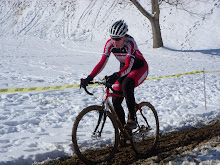The Importance of Recovery in Reaching
Athletic Goals
It is not hard to see the advantages of working out. Health and wellness rely on a body that is
often in motion, and the emotional and physical well-being that results is a
phenomenon that spurs folks on to continuing this life style. Those who become bitten by the workout bug
find ways to inject more workout time into their life, since their exercise
makes them feel so darned good. Folks
blessed with a bit of talent often choose to become competitive in their
sport. What fun! When they begin to compete they seem to be
faster every time they go out and workout.
Stopwatch turned on, they are out the door and looking for another
personal best.
What Happens When
We Train?
In coaching we have a saying “the more you do, the more
you can do.” The body is a marvelous
creation that gets more and more efficient at pounding things out. Just one of
many processes in endurance sports is that more mitochondria are packed into
muscles as the body adapts, increasing the ability to carry oxygen. The body
can seemingly do more with less, and it also becomes more efficient at
recovering from athletic poundings. It
can be said that part of the process of training the body to do more than
before is tied up into the reality that the body learns how to recover from
that “more.” What a gift!
In the early phases of one’s athletic pursuit adequate recovery
comes with the territory, since workouts are generally short and likely not
crammed into every single day. Once the
competitive bug hits, though, many athletes jump onto the “more IS more”
bandwagon and train harder and longer, since a minor version of this is what
made them good in the first place. What
could be bad about that?
When one works out, whether it is endurance sports, skill
sports, weight lifting, or combinations of all, the body endures damage to the
muscles and deficits to all its systems. Reaction to this is a miraculous rebuilding by
the body which, ideally, brings the systems up to an even stronger status
quo. Getting faster/stronger is a
by-product of this rebuilding. This
essentially, is healing, and it takes time, happening most effectively when the
body is resting.
Many athletes take this gift for granted, though, and
continue with their “more is more” philosophy of training in hopes of
improving, as people enjoy their chosen sport.
Some people brag about never even taking a day off, which, in their
mind, gives their workouts even more importance. What has happened, though, is that the
athlete has now flipped over to the other side, ignoring this critical equation: Workouts + recovery = training. Yes, without recovery workouts are simply
workouts.
What Makes Us
Stronger?
There are articles galore about the importance of
recovery for the athlete. Again, the
repairs to the body are best done while resting, since more of the energy
systems are available for that purpose.
The offshoot of this is that, once recovered, the body feels GOOD, and a
body that feels good is going to be able to push the envelope in training to induce
the processes that propel the body to the next level. That is it, in a nutshell. Train while too tired and those numbers are
not going to be reached. Race while too
tired and the results are discouraging, at best. The motivation that the athlete has to
improve must fuel the desire to rest as much as the desire to work out.
What Helps the
Body Recover?
Tactics include:
·
A strategically placed day off works
wonders. At times a complete week
devoted to recovery is in order.
·
A workout schedule that peppers easier days
between the hard days is also smart, since the body has a couple of days to
recover from the last hard workout – provided the easier days are actually
easy!
·
Immediate nutrition and rehydration after a hard
workout, as a follow-up to adequate nutrition and hydration during the workout.
Eating and drinking are under our own control, and avoiding a fall into a big
preventable deficit gives the athlete less to actually recover from.
·
Stretching and meditation can help bring the
body back to a calmer place.
·
Chilling out – doing nothing – can have a huge
impact. A person I know painted his
house whenever he had a day off from cycling.
He was not feeling very rested. Improvements were negligible.
·
And, paramount to all of these: SLEEP!
Human Growth Hormone is specifically released by the brain while
sleeping. There are hosts of metabolic
processes that, not surprisingly, happen while asleep, yet athletes often cheat
themselves out of this valuable tool. Conversely, when athletes sleep even more
than usual their athletic abilities improve. “Magic,” for sure, but it is difficult to for
most folks to simply slow down and go to bed.
Temptations abound. This article from ESPN calls sleep “the new magic
pill.” http://www.espn.com/espn/commentary/story/_/id/7765998/for-athletes-sleep-new-magic-pill
Some last words
from a variety of coaches that I have spoken with and read: You can work out hard and long, but you will
never be as good as you could have been if you do not take the time to
recover.


No comments:
Post a Comment